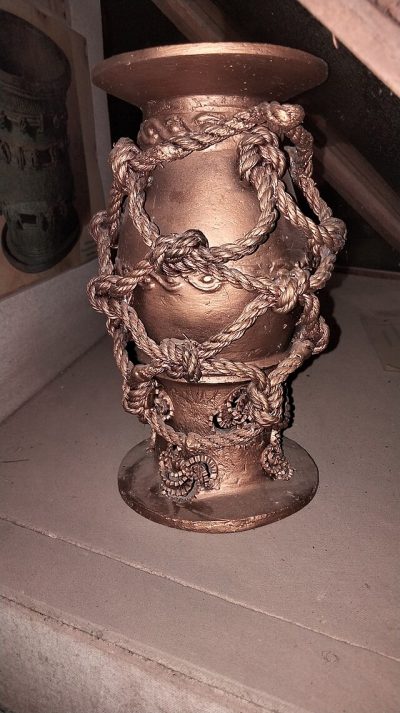Acholonu on Africa’s Lost Knowledge and Civilizations (Pt 5)

Igboukwu bronze works are relics of Africa’s lost civilizations. Image by Wikimedia Commons
Conclusion: Africa, Cradle of Civilization, Keeper of Humanity’s Lost Codes
Global Impact
FeelNubia: When did it become clear that your discoveries were of such global and historical magnitude?
Prof. Acholonu: The revelation dawned gradually. It became undeniable as the patterns emerged across cultures, languages, and spiritual traditions. What began as a study of Igbo oral history soon became a sweeping reexamination of humanity’s origins. This reexamination places Nigeria, and specifically the Cross River region, at the heart of world civilization. Our research uncovered that the original language lost after the Fall—after the separation from divine consciousness in Genesis—was likely a Nigerian language, the ancient Kwa tongue. The Igbo language, more than any other, retains the core structure and symbolic essence of this primordial speech.
We found that Esh, the Hebrew word for “man” or “Adam,” aligns directly with the Igbo word Eshi, meaning “son of God.” Eshishe means “to remove or subtract,” just like the biblical Eve was taken from Adam. These are not coincidences, but linguistic relics point to a shared spiritual and historical origin. Even the concept of childbirth post-sin is documented in Genesis and mirrored in Ikom traditions. They say the first natural childbirth happened there. Before then, multiplication was metaphysical, by intent, not by physical conception. The child born after the Fall was named Nbom, which means “spirit of duality”—signifying the birth of division, mortality, and moral consciousness.
Recognition
FeelNubia: Have these findings been recognized outside Nigeria?
Prof. Acholonu: Without a doubt. Our books have been recognized globally. That is: The Gram Code of African Adam (2005), They Lived Before Adam (2009), and The Lost Testament of the Ancestors of Adam (2010). In 2009, we were honored at the Harlem Book Fair in New York, the largest African-American book festival in the world. The organizers staged a dance drama in our honor. Our work was presented with two international awards. We were also granted 30 minutes of free airtime to share our discoveries with a global audience.
Shortly after the first book was published, I was awarded a professorship by the Pilgrims University and Theological Seminary. It is an institution affiliated with Edo State University, but based in the U.S. I was appointed a professor of African History and Philosophy.
In 2007, the Centre for Black and African Arts and Civilization (CBAAC) and the Trust for African Rock Art (TARA) invited us to present our findings in Kenya. Archaeologists, anthropologists, and historians had previously doubted that African rock art could be a writing system. But after our presentation on the Ikom Monoliths, they were convinced, clapping in agreement.
This work also reached the World Monuments Fund in New York. We submitted a nomination for the Ikom Monoliths as one of the most endangered yet culturally significant sites globally. It was accepted. In their 2008 international listing, the monoliths were described as “stone inscriptions belonging to a time before 2000 BC”. It was a powerful validation that Africa had a writing culture millennia before the classical civilizations of Europe.
Peer Acknowledgements
FeelNubia – That’s incredible. Has this scholarship made its way into academic records?
Prof. Acholonu – Yes. Our books are used in universities across continents. In December last year, we presented a paper at the University of Nigeria, the country’s first indigenous university. That presentation on all three books and the Lost Testament is available on YouTube.
We’ve also collaborated with scholars across Europe. One notable example is Christine Pellek, a Belgian researcher who runs a website called Migrations and Diffusions. Her work is now over 30 years old. After reviewing our work, she published it and recorded over 4,000 hits in one month. It became the second most downloaded material on her platform. She asked for more, but I preferred to keep the spotlight on the original books.
Even more validating was an invitation from a professor at the University of California. We permitted him to permanently archive our materials in the university’s digital system, ensuring global academic access even if our platforms shut down. I told him:
“My work proves that civilization began in Nigeria. The migrations that birthed the world’s great cultures originated here. Africans, especially Nigerians, were the carriers of that divine mission.”
He responded, “My wife says this must be true. In all her years teaching at UC, the most brilliant students she’s ever had are Nigerians.”
That moment affirmed what I had always known: Nigeria is more than a nation. On account of Igboukwu and Ikom, it is a spiritual epicenter, a nucleus of civilization, and the guardian of the world’s first wisdom.
Conclusion: A Legacy of Light
Professor Catherine Acholonu passed away in March 2014. She was 63 years old. Her life was a profound tapestry of intellect, spirit, and courage. Her work reminds us that history is not fixed; it is a living entity waiting to be reawakened by those bold enough to seek it. Her life’s work is immortalized in her books and at the Catherine Acholonu Research Centre, CARC.
At FeelNubia, we honor her work, invite you to explore her research, see Africa through her eyes, and draw your own conclusions.
Read Part 4 of this interview.
